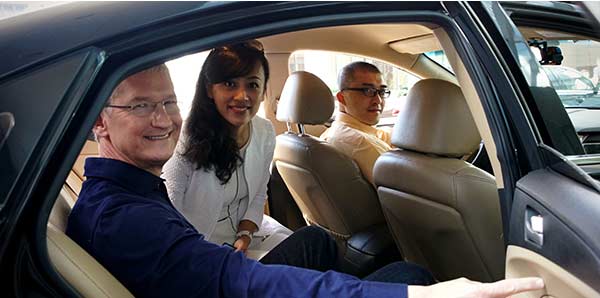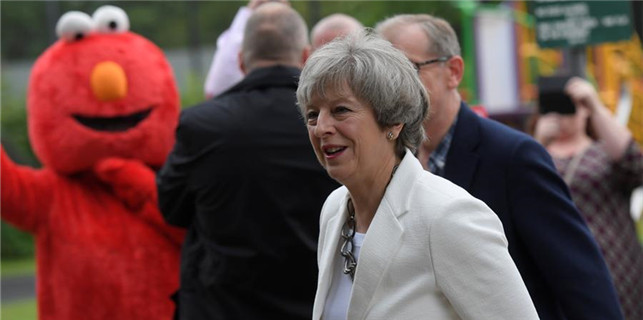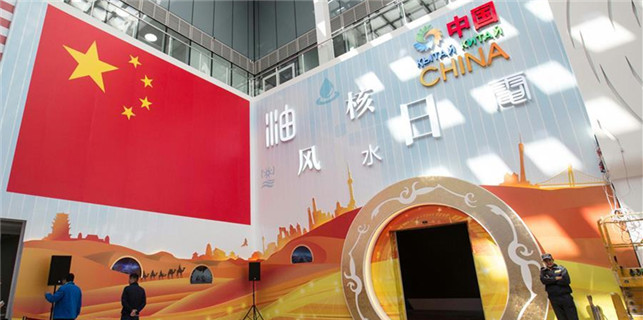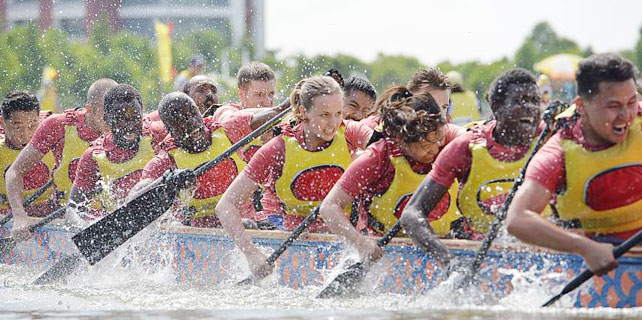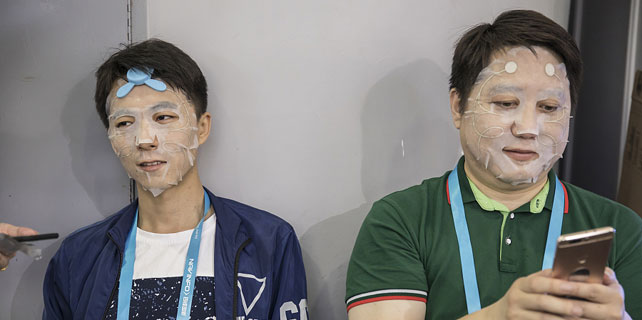Running a sports biz marathon
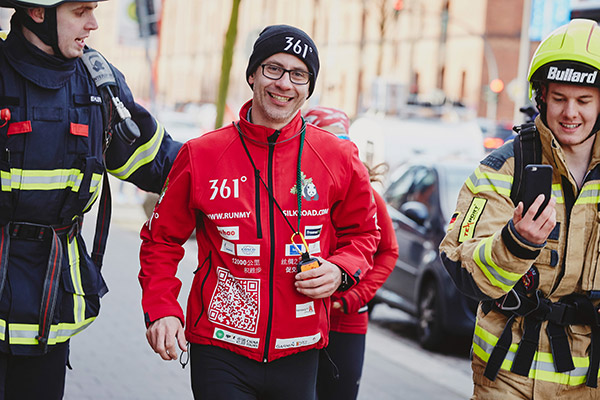 |
|
361 Degrees sponsored Kai Markus, a professional German runner, to run 12,000 kilometers as part of the 'Run My Silk Road' project. Markus ran from Hamburg to Shanghai passing through eight countries from March to November in 2016. [Photo/China Daily] |
361 Degrees is set for the long haul in sportswear and equipment market
Xiamen-headquartered 361 Degrees International Ltd, one of China's biggest sportswear manufacturers by sales revenue, has embarked on a global business marathon of sorts.
For the uninitiated, 361 Degrees sponsored 106,500 sets of uniforms for the 2016 Rio Olympic Games athletes and officials, thus gaining global visibility.
Since then, its brand image has brightened and new regional branches are coming up in the United States, the Netherlands and Brazil.
The company is keen to support sports activities such as marathon races in countries and regions participating in the Belt and Road Initiative this year. It announced that it has become the official partner of the 2018 Jakarta Asian Games in May.
It also plans to raise the proportion of its overseas business to over 10 percent by 2022 from 1.6 percent now.
As an expanding business, 361 Degrees plans to build a global sales network well supported by logistics centers in Australia, South Africa, Italy and Germany this year.
It is working to improve online sales in both developed and developing economies.
Ding Wuhao, president of 361 Degrees, said these moves will cash in on the company's continued growth by meeting the demands of many countries' burgeoning middle class.
This segment of people is "placing a higher emphasis on the quality of life experiences"; and "the needs of many economies with an ignited interest in sports" have to be met, he said.
So, 361 Degrees started its international expedition in 2014, and created an initial network of international sales and logistics centers by 2016, well in time for the Rio Games.
Such efforts helped boost its sales revenue by nearly 13 percent year-on-year to 5.02 billion yuan ($738 million) last year.
"Many opportunities come from countries and regions taking part in the Belt and Road Initiative. They have a growing demand for various sports products, especially running and daily training shoes, sportswear made with new material and ski equipment, particularly in countries in East Europe, Central Asia and Southeast Asia," said Ding.
The group's main businesses include adult and kids clothing lines under the One-Way brand and e-commerce. It established 6,735 stores in the China market, of which 2,000 were points of sale for kids by the end of 2016.
To strengthen the Belt and Road Initiative, 361 Degrees will adjust its overseas expansion strategy, Ding said. This would mean securing more market share in Asian markets and burnishing its brand in Europe, the Middle East and Africa.
The company also operates a number of shops and points of sale in new emerging markets such as Vietnam and Nepal through local dealerships.
"Strengthening the dealership network is an effective way of reducing financial risk in a new market, because our local dealers are familiar with both market environment and customers," said Ding. "We're both out to make a profit, and they want a return on their outlay as soon as possible."
In global markets, 361 Degrees owns 101, stores and sales points in Brazil, 264 in the US and and 67 in Europe where the company has stretched out to the United Kingdom, Germany, France, Austria and Switzerland, after setting up regional headquarters in Amsterdam in 2014.
Ding said 361 Degrees will focus on sales in Brazil, the US and Europe, while in Asia, including the Middle East, it will look to expand through authorized dealers and set up branches when it is appropriate.
Besides, Australia, South Africa and other emerging countries have also aroused the company's interest.
To better promote its brand, 361 Degrees has sponsored Kai Markus, a professional German runner to run 12,000 kilometers from Hamburg in Germany to Shanghai passing through eight countries from March to November last year. Markus' transcontinental run lasted 235 days.
Its manufacturing base is located in Jinjiang, Fujian province. Its business runs on the OEM (original equipment manufacturing) model in Vietnam, as the practice can effectively cut import tariffs and help further its global supply chain.
Ding said the company will decide whether to set up its own manufacturing units abroad based on its sales performance in overseas markets. The company invested 3.7 percent of its sales revenue in research and development in 2016. It will continue to allocate part of its budget to innovation activities, especially sportswear materials, shoe-shaping and related functions.
The company acquired a 70 percent stake in the China unit of Finnish brand OneWay Sport, to offer domestic consumers more options in skiing and bicycle equipment.
He Jingtong, a business professor at Nankai University in Tianjin, said it would be practical for domestic sportwear companies to strip away non-core businesses and focus on trendy fashions associated with skiing, golf and hockey. Such a strategy will boost profits, he said.
As more people in China are enthusiastic to take part in various marathon games, 361 Degrees has already sponsored a number of domestic marathon events, including those in Suzhou, Changchun, Chengdu and Tengchong.
From a long-term perspective, 361 Degrees will continue to focus on four main growth drivers: running, football, basketball and daily training products. This is part of a strategy to strengthen the brand in key categories and lead mindshare, according to the company.




